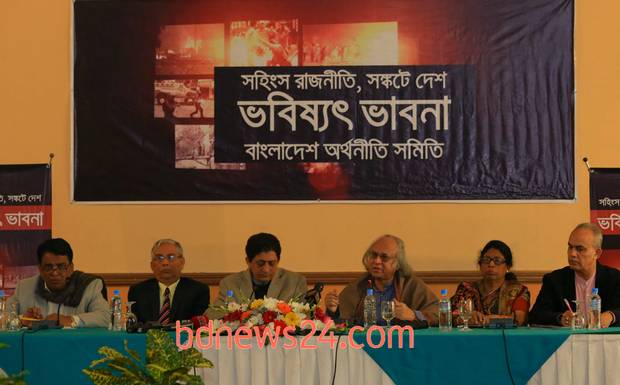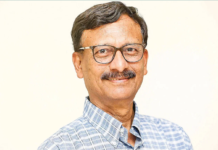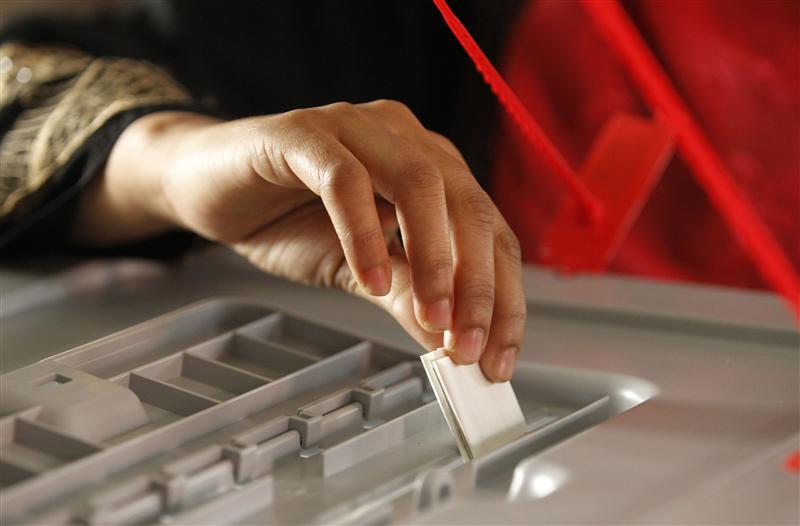A platform of eminent citizens has opposed the demand of another group of prominent citizens to stall Sunday’s polls, saying such a demand is aimed at ‘creating a constitutional vacuum’ in Bangladesh.
On Dec 28, most of the participants at a discussion, organised by four non-government organisations (NGO), advocated cancelling of Sunday’s general elections.
A week later, at another discussion organised by the ‘Bangladesh Economic Council’, former Bangladesh Bank governor Mohammad Farashuddin said the government had not failed over the polls issue.
He said the Opposition had demanded Prime Minister Sheikh Hasina to step down as a pre-condition for them to contest the polls.
Farashuddin said simply asking the Prime Minister to resign was unconstitutional.
The former central bank governor pointed out the Constitution clearly says a Prime Minister cannot step down before the end of the tenure unless if the Prime Minister’s party loses majority in the Parliament or if he or she loses confidence of the MPs or if the government cannot get the budget passed and if PM is convicted of any moral degeneration.
“They (the Opposition) have given various terms. They had named several people who could head [the caretaker government] but declined to head it themselves. In that case, the demand for a caretaker is just a subterfuge,” he said.
“The only reason behind the demand for halting the polls is to unleash anarchy by creating a constitutional void… [The demand aims at] leaving the country at the mercy of those who are killing people, hurling petrol bombs, murdering children.”

At the discussion on Dec 28, speakers demanded stalling Sunday’s polls. Several prominent local newspapers also ran opinion pieces supporting the demand.
Most of the participants were NGO workers, advisors of the past military-backed caretaker government and those lawyers and businessmen who came to prominence during the Jan 11 takeover.
Several BNP leaders had also taken part in the discussion.
Moderated by Debapriya Bhattacharya, the participants included Barrister Rafiq-Ul Haque, Prof Rehman Sobhan, Prof Abdullah Abu Sayed, columnist Syed Abul Maksud, former caretaker government advisors ASM Shahjahan, Moinul Hossain, Hossain Zillur Rahman, Syed Manjur Elahi, Rokeya Afzal Rahman, Tapan Chowdhury, business leader Anisul Haq, environmental lawyer Syeda Rizwana Hasan, former diplomat Faruk Chowdhury, Mahila Parishad leader Ayesha Khanam, architect Mobasser Hossain, former BKMEA chief Fazlul Haq, women organisers Rokeya Kabir and Salma Ali, cultural activist Lubna Mariam, Dhaka University teacher Asif Nazrul and BRAC University teacher Pias Karim.
Riaz Uddin Ahmed, Mahfuz Anam and Motiur Rahman Chowdhury, among the journalists, had attended the event.
Criticising the participants of the earlier discussion, eminent writer Zafar Iqbal on Saturday said: “When our intellectuals demand halting the election process, they do so because [they want] the Jamaat-e-Islami be allowed to contest the polls.”

Iqbal was also critical of the NGOs. “To the best of my knowledge, Bangladesh has made progress. It is no more dependent on foreign aid.
“Foreign donors now assist the NGOs. Those NGOs held a meeting and said the elections cannot be held. They, however, did not add that ‘first stop violence and then we’ll sit for talks with you’.
“An article appears in an English newspaper, and the following day its Bangla translation is published. The article calls for halting the elections. Why doesn’t it say the violence has to be stopped?
“There are solutions,” he said, “I’ve seen it with my own eyes.”
Iqbal referred to the joint initiative by the Awami League and the BNP to thwart acts of sabotage by the Jamaat in Gaibandha. “There are solutions. We’ll unite leaving out the Jamaat. But no newspaper wrote about it.
“If they can solve the problem in an Upazila, then why can’t we use it as a model for the whole country?
“It means, they don’t want a solution,” he concluded.
Abul Barkat, presiding over Saturday’s discussion, said the Jamaat had 125 militant organisations under it which are financed by the Islami Bank, life insurance companies and other businesses. The Jamaat was threatening to wage civil war in Bangladesh with these, he alleged.
He said the businesses had suffered a loss to the tune of estimated Tk 1 trillion in the last month. The new government will face the brunt of the damages when it takes over.
Barkat requested the European Union and the US not to take a decision over Bangladesh after speaking with “couple of NGOs”.
Litterateur Syed Shamsul Haq emphasised on rejuvenating the spirit of the 1971 Liberation War to thwart the violence.

Palli Karma Sahayak Foundation Chairman Dr Kazi Khaliquzzaman Ahmad said: “Everyone is speaking of a dialogue but with whom? There can be no talks with those who are orchestrating terrorism.”
University Grants Commission chief AK Azad Chowdhury said there were acts of violence ahead of the polls and many were speaking of a dialogue and an agreement to cover up these acts of sabotage.
“Talks can only take place if everyone comes forward with the spirit of the Liberation War,” he said.
National University Vice-Chancellor Harun-or-Rashid said the Prime Minister had already said talks could be held over the 11th parliamentary polls. Sunday’s elections were to uphold the constitutional and democratic practices.
He proposed four options to resolve the ongoing crisis. They are – finishing the pending war crimes trials and executing the verdicts, banning Jamaat-e-Islami as a political party, informing the people about the current violent incidents after the elections and convincing the BNP to join the next polls.
Former Chittagong University Vice-Chancellor Abdul Manna compared the current political crisis with the situation of 1971.
“This crisis has taken shape centring the trials of the war criminals. Another major reason is to turn Bangladesh into a failed country,” he said.
Source: bdnews24










